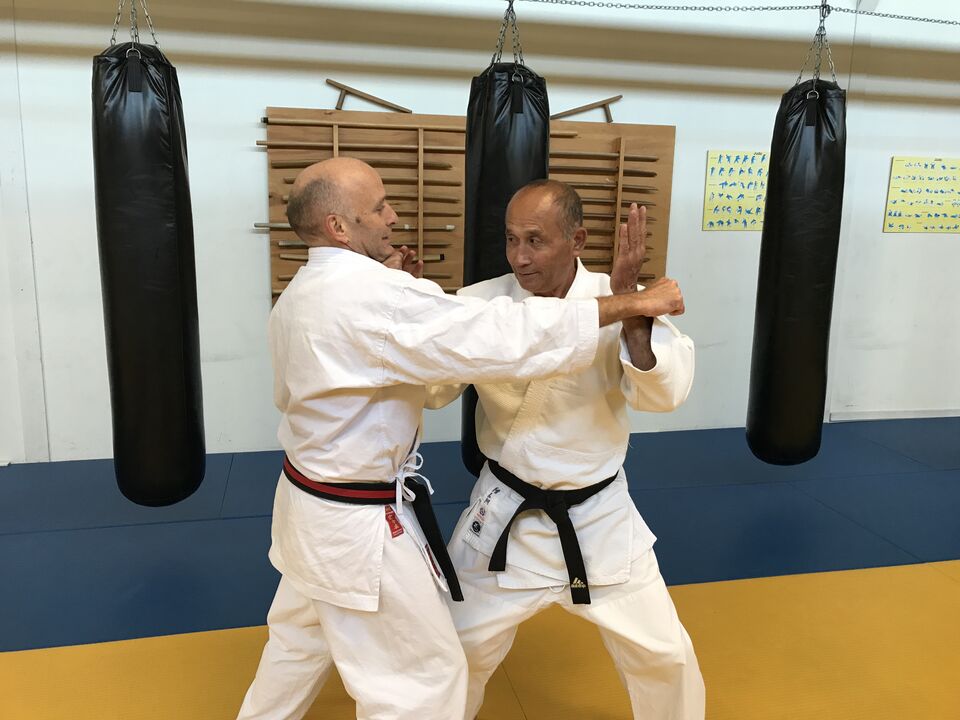
- Campus
- 06/10/2017
Martial arts specialist Huub Meijer makes way for new generation
For thirty years, Huub Meijer, former Dutch champion and national coach of the Dutch karate team, spent evening after evening in the dojo and the gym of the Student Sports Center working as an instructor. He taught students the intricacies of various martial arts and ran strength-building and circuit training sessions. All the prizes he has won over the years are now stored in plastic bags – ‘they were on show at home for long enough’ – but he looks back on a glittering career with satisfaction, and with even more pleasure on a fine working life as a trainer.
His love of karate was sparked when he was about fifteen. “I had always loved to kick.” Sandbags mostly bore the brunt of the beatings delivered with his well-trained legs. “Back then someone said to me, ‘You should give karate a go. To which I replied: ‘What is karate?” His interest was born, and he acquired his first Japanese trainer in Amsterdam, Teruo Kono.
A combination of rigorous training and mastery of the technique took the calm martial arts specialist far. So far, in fact, that in the 1970s he twice became the Dutch national champion. In which years exactly, Meijer no longer remembers, but that doesn't seem to bother him. He is equally unconcerned by no longer knowing precisely when, in his role as national coach, he achieved success with the Dutch team in the 1990s. Asked which is the prize he is most proud of, he does not pick a national or world trophy. “I was impressed by the style award I received from Kono, which I was given by him because I was the best karate fighter at that time.”

For many years, he spent four evenings a week at TU/e running four-hour training sessions. As well as karate, he gave lessons in kempo-jutsu and judo. Meijer has always had a good relationship with his pupils. Indeed, various of them requested that he be interviewed. “In all those years, my groups were full and I kept things as individual as possible. For example, it was a habit of mine to greet my pupils by shaking their hand as they entered the dojo.”

At the age of sixty-five, Meijer started cutting back his hours of work, and last summer he decided to stop completely. “I was having trouble with my foot and I wanted to let the younger people take over. Everything comes to an end; it is time for the next generation.” Today he has a very different life. “My wife is still working and I run the household. But I like doing it.” And now the former national coach is going home. “Think I'll put on a couple of washes,” he says with a smile.





Discussion